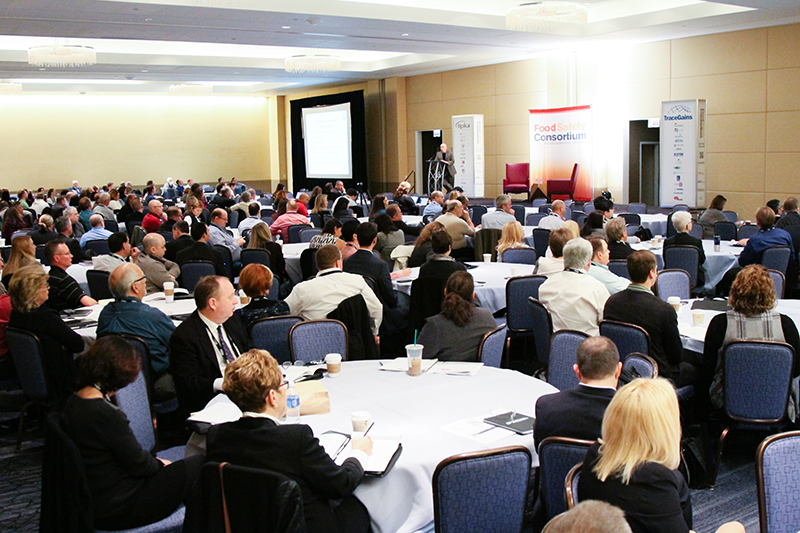FSMA, Listeria, Fraud and Food Safety Culture Among Top Topics at Food Safety Consortium

The 2016 Food Safety Consortium was a big success, from the preconference events that included the STOP Foodborne Illness fundraiser honoring heroes in food safety and the education workshops (SQF Information Day and preventive controls courses) to the record-breaking attendance we saw during the main program (with keynotes from FDA Deputy Commissioner for Foods and Veterinary Medicine Stephen Ostroff, M.D., Walmart’s Vice President of Food Safety Frank Yiannas, and FBI’s Special Agent Scott Mahloch).
As the event winded down, the leaders of each session track shared their insights on lessons learned during the Consortium.
Understanding biofilm and how it forms. If you’re seeing peaks and valleys in the positives and negatives in your environmental swabbing program, you may have resident Listeria that has formed a biofilm, which requires a deep clean. Focus on biofilm, not just mitigation of the Listeria bacteria itself. – Gina Kramer, Savour Food Safety International. Read Gina’s column, Food Safety Think Tank, where she talks about the latest technology and innovations.
This is the first conference I’ve been to you where food fraud is being more widely acknowledged as a serious, important concern that is distinctly separate from food safety. One of the more significant takeaways is the number of tools that are now available for people to mitigate their risk to food fraud in the supply chain. – Steve Sklare, USP
A while back food safety was a nice-to-have but not a need-to-have. It’s certainly an absolute need-to-have now. There are three groups of individuals out there: The third that has picked up the baton and is proactive, the other third that are in the middle of it right now, and the other third have their heads in the sand. I come across a sizable portion that is in the bottom third, and it’s slightly scary… It’s the documentation that a lot of companies are having the biggest challenge in dealing with—the death by paper. The resources out there are immense. It’s a necessity to have right now in order to be effective and compliant. – Warren Hojnacki, SGS
FSMA regulations require us to be risk based, scientifically based and systematic in our approach to our concerns and issues. – Barb Hunt, Savour Food Safety International
There’s potential for greater data and actions: i.e., the microbiome study or particulate contamination analysis, PLM, IR spectroscopy, SEM EDS, [and] raman spectroscopy…Lab customers may need to depend more greatly on contract labs as FSMA develops and in return, labs need to work more closely with the customers to get dependable, defensive data results. – Eric Putnam, Wixon, Inc.
We need to do a better job of messaging upstream to our corporate senior officials so we get the money and resources we need—there’s still a gap there. We need to find ways to communicate to them. – Trish Wester, PA Wester Consulting